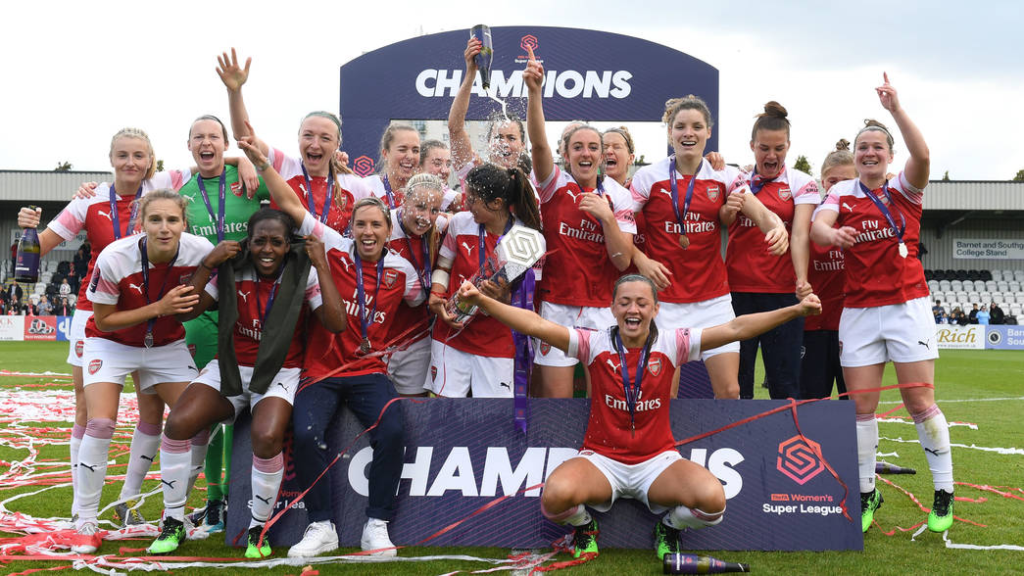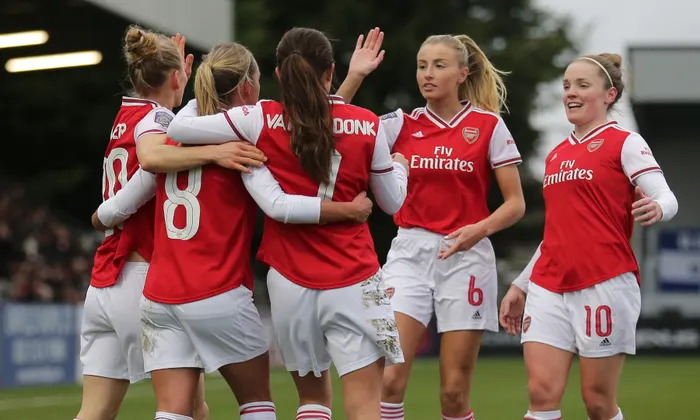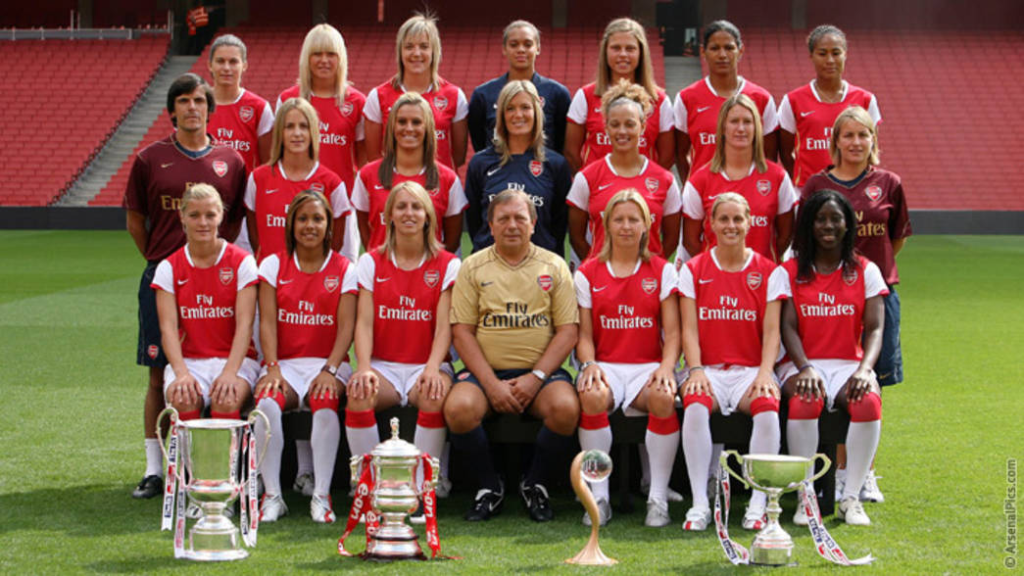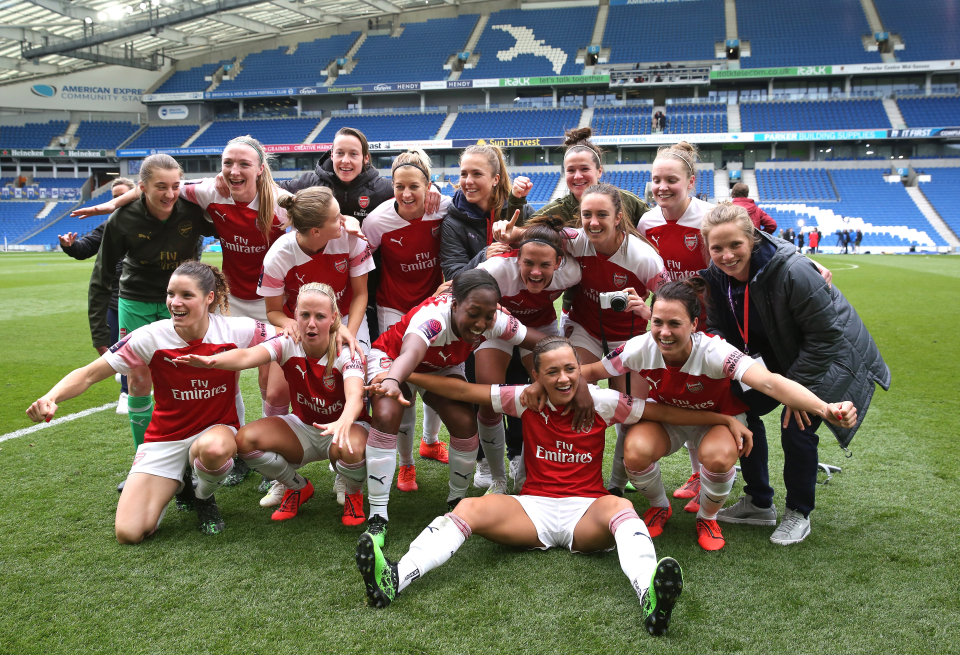Arsenal Football Club rose from modest roots to become one of the most successful football clubs in England. From their successful men’s football team, to arguably the even more successful women’s team, the Club has risen holistically from those modest beginnings to the pinnacle of being one of England and Europes best.
What League and Cup trophies have the Arsenals Women’s Football Team won? In their illustrious history, Arsenal Women have won a staggering 58 titles. Arsenal is statistically the most successful club in English women’s football, having won the most championships in each domestic tournament in which they have completed. The team has 15 League championships, 14 FA Women’s Cups, 5 FA WSL Cups, 10 Women’s Premier League Cups, 5 FA Women’s Community Shields, and is the only British club to have won the UEFA Women’s Champions League.
During the 2006–07 season, the club became the first in women’s football history to accomplish the continental European sextuple, a magnificent achievement. They are also the first English football team, male or female, to win the Continental Treble while remaining unbeaten in all competitions that season.
Arsenal Ladies Football Club – History
Vic Akers, the long-serving Arsenal men’s team kit manager, assisted in the formation of a women’s football club and was chosen as its first manager in 1987. Arsenal Ladies Football Club was the club’s first name.
Due to a general decrease in interest in women’s football in England, Arsenal was restricted to sporadic, nomadic cup appearances for the first four years of their existence and didn’t become professional until 2002. In the 1991–92 season, they won their first major award, the Women’s League Cup. They also gained promotion to the FA Women’s Premier League from the FA Women’s National League South in 1992, and a season later won the top division championship at the first attempt.

This record has been maintained, and the club has won the most doubles and trebles in English football history. Arsenal has also completed a record seven undefeated league seasons, breaking numerous English records including the longest unbeaten run in the top division, goals scored, and points earned.
This marked the start of an era of continuous dominance for the club, which shortly relocated to Meadow Park in Borehamwood, Hertfordshire, as part of a ground-sharing arrangement with non-league side Boreham Wood.
Over the following two decades, Arsenal addressed all aspects of the ladies’ game, including training, tactics, scouting, and money, intending to maximize the club’s development and achieve championships. Arsenal had several seasons at the top of the Premier League in the 1990s and 2000s, having academy graduates regularly being promoted to the first team and spending the club’s money on players season professionals to enable the team to win a plethora of trophies.

Arsenal Ladies Football Club – Accolades
In their history, the Women’s team won numerous accolades for the club. This included seven consecutive league victories from 2003–04 to 2008–09, as well as six undefeated seasons. Furthermore, in the 2006–07 season, Akers led the squad to the most successful club season in English women’s football, winning every single competition available to them, including the coveted UEFA Women’s Cup.
The trophy was Arsenal’s sole one from the European competition, and it was the first time an English team had won the tournament. The Sports Journalists’ Association honoured this unusual six-fold honour with The Committee Award at the 2007 Sports Journalists’ Awards.

Tony Gervaise replaced Akers, but resigned in February 2010 after just eight months in command, implying that his position had been weakened by outside influence. In an unexpected turn of events, reserve coach Laura Harvey was promoted to first-team manager, while Gervaise was promoted to reserve coach. Harvey was the club’s first female coach in any position when she was appointed to this role.
SA Women’s Super League
After a year off to prepare for a restructured competition, Arsenal was chosen a founding member of the FA Women’s Super League, which began in the spring of 2011. Arsenal won the first season, their eighth straight English championship, as well as the FA Cup, completing another domestic double. Shelley Kerr was named Harvey’s replacement in 2013 after two years without a league title.
The club won two FA Women’s Cups during her guidance, including one in 2014, two weeks after the men’s team won the FA Cup, completing a rare FA Cup double for the club. Kerr resigned after a dismal run of play that saw Arsenal earn just one point from the first four league matches of the 2014 season, including exits from the Champions League to lowly Birmingham and a shock defeat to Reading. Pedro Losa took her position.

Losa guided the club to the FA WSL Cup in 2015 and the FA Women’s Cup in 2016. Furthermore, he assisted in the rebuilding of the team, particularly by signing a selection of younger players to his squad. However, Losa resigned after the season and was replaced by Joe Montemurro.
In July 2017, the club was renamed as Arsenal Women Football Club, in what Arsenal termed as a “clear statement of cohesion and solidarity” and to maintain the club’s progressive spirit. Montemurro guided Arsenal to the 2018–19 Women’s Super League championship with a game to spare, using the core Losa helped create. The victory was their first in seven years, and it marked the club’s first return to the Champions League in five years.
The Current Team
The current Arsenal Ladies team is an intriguing mix of youth and experience, with 8 different nationalities and young players who have risen through the ranks. The Women’s team, with their unique and unrivaled history for winning League and trophies domestically and in Europe, will in all probability continue to prosper.
Arsenal Foot Club, whether it be their Men’s or Ladies’ team, will continue to flourish across all spheres not only about trophies and League titles but also the way the Club is being run on a holistic level. The success that the Club has historically achieved has not gone unnoticed and hence the massive support the Club has garnered on a global scale especially over the last two decades.
